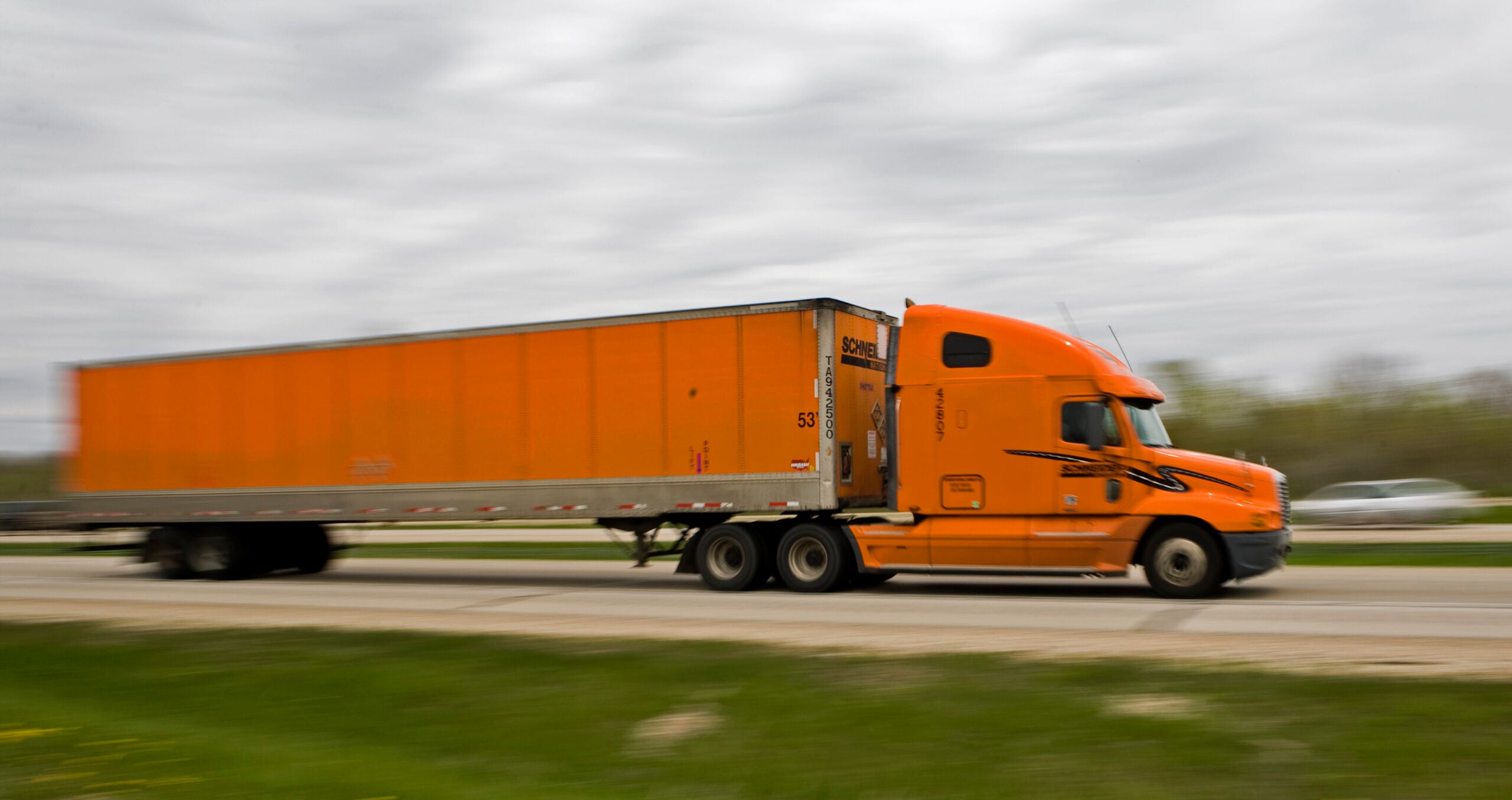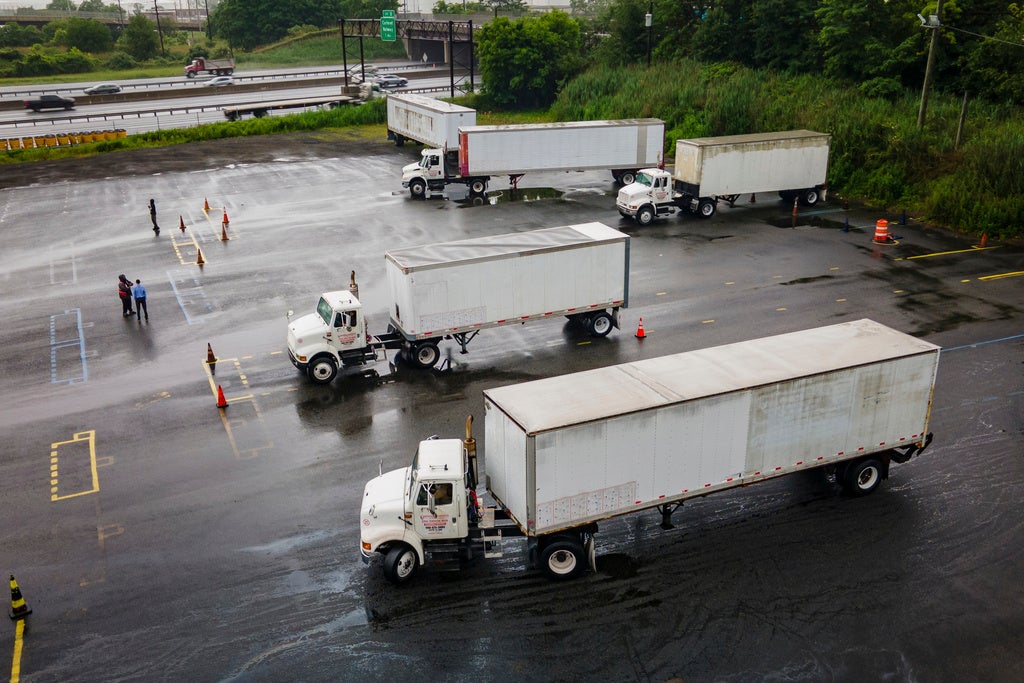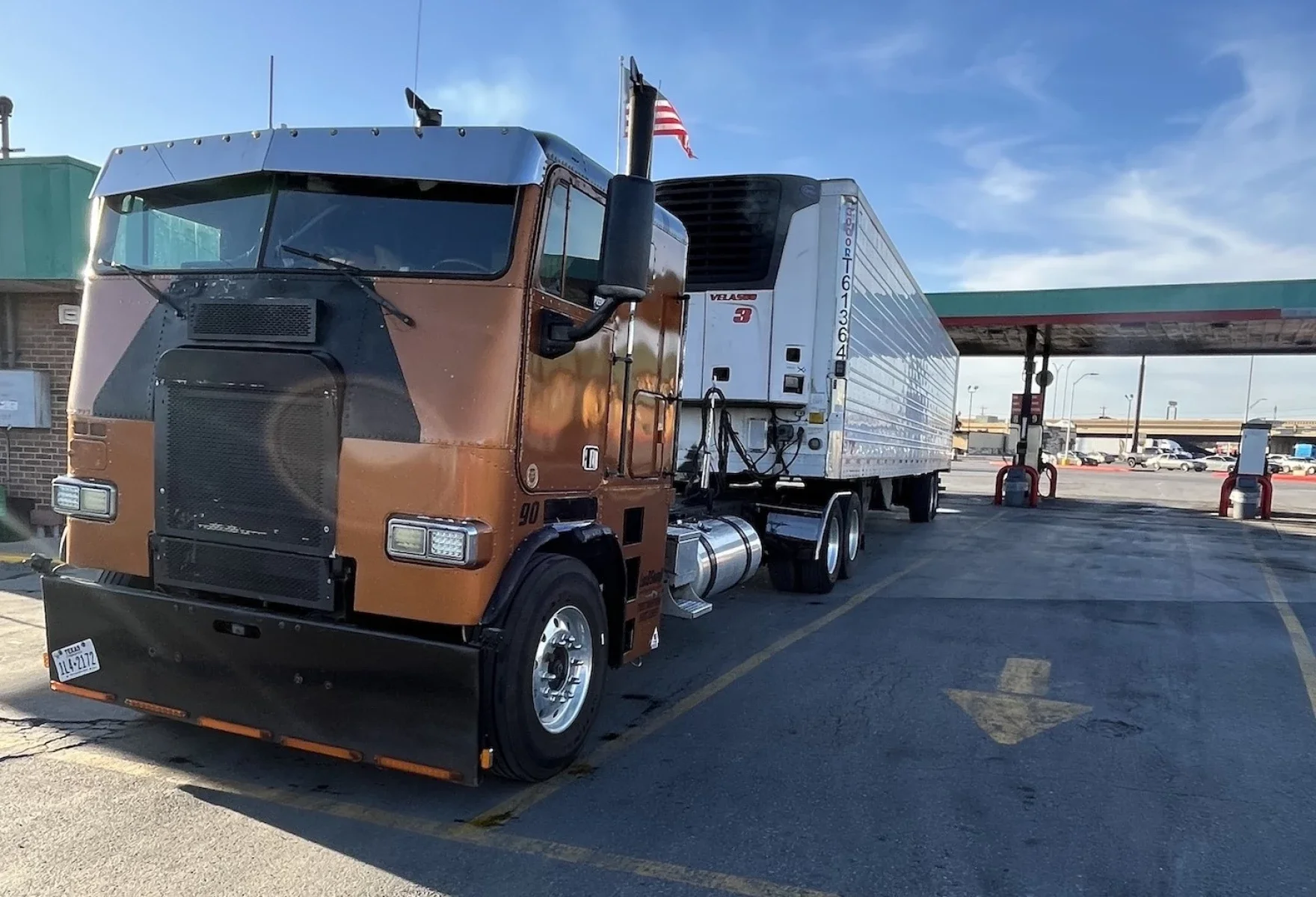After a run on essential supplies like water and toilet paper, many grocery shelves across the country were empty early in the coronavirus pandemic. It forced many Americans to think about the nation’s supply chain for the first time.
Green Bay-based Schneider National, one of the country’s largest surface transportation companies, was founded during the Great Depression. It’s weathered 12 recessions but hasn’t been immune to the impacts of the coronavirus pandemic, said Todd Jadin, vice president of associate relations at Schneider National.
After the initial rush to stock up on necessities, demand for shipping dropped off in some sectors as many businesses across the country closed in an effort to slow the spread of the virus. As states have reopened, Schneider has seen its volume rebound, Jadin said.
News with a little more humanity
WPR’s “Wisconsin Today” newsletter keeps you connected to the state you love without feeling overwhelmed. No paywall. No agenda. No corporate filter.
It’s been a volatile time for the transportation industry, said Ben Hartford, a research analyst at Baird.
Companies with larger portfolios, like Schneider, have benefited from being able to shift their resources from serving companies that have closed toward sectors like health care, where demand has increased as a result of the pandemic, he said.
In recent months, Schnieder has focused on the safety of its own employees, Jadin said. As of Friday, 41 of Schneider’s nearly 20,000 workers had tested positive for COVID-19. All of them have recovered and returned to work, he said.
Schneider provides drivers with personal protective equipment and cleaning supplies. Much of the paperwork that drivers and customers usually exchange by hand has gone digital, Jadin added.
Across the industry, drivers have assumed a lot of risk amid the pandemic, especially in March and April when much more about the virus was still unknown, Hartford said.
Drivers make up about 70 percent of Schneider’s workforce, Jadin said. The company also employs mechanics and warehouse staff who can’t work from home.
“I’m very proud of what our drivers have been able to do, what the industry has been able to do because clearly consumers need product during times like this,” he said.
The pandemic has shifted the spotlight on the industry, Hartford agreed.
“I think transportation and logistics have shown the value that they do bring kind of behind-the-scenes,” Hartford said. “It’s often kind of forgotten the work that they do.”
The coronavirus pandemic has already left big impacts on the trucking industry.
For years, the field has struggled to recruit new drivers. As a result, the American Trucking Association estimated the industry was short by about 60,000 drivers before the pandemic struck.
As the movement of freight has slowed in recent months, so has the long-standing driver shortage, according to Transport Topics, an industry trade magazine.
The pandemic is also shining a light on the critical role technology will play in the industry moving forward. In fact, Schneider’s commitment to more efficient technology is one of the reasons it’s well positioned to succeed in this uncertain time, Hartford said.
“I don’t think I’m speaking hyperbolically,” he said. “(Technology) is going to have a revolutionary type of influence and role within the transportation and logistics space.”
Wisconsin Public Radio, © Copyright 2025, Board of Regents of the University of Wisconsin System and Wisconsin Educational Communications Board.







